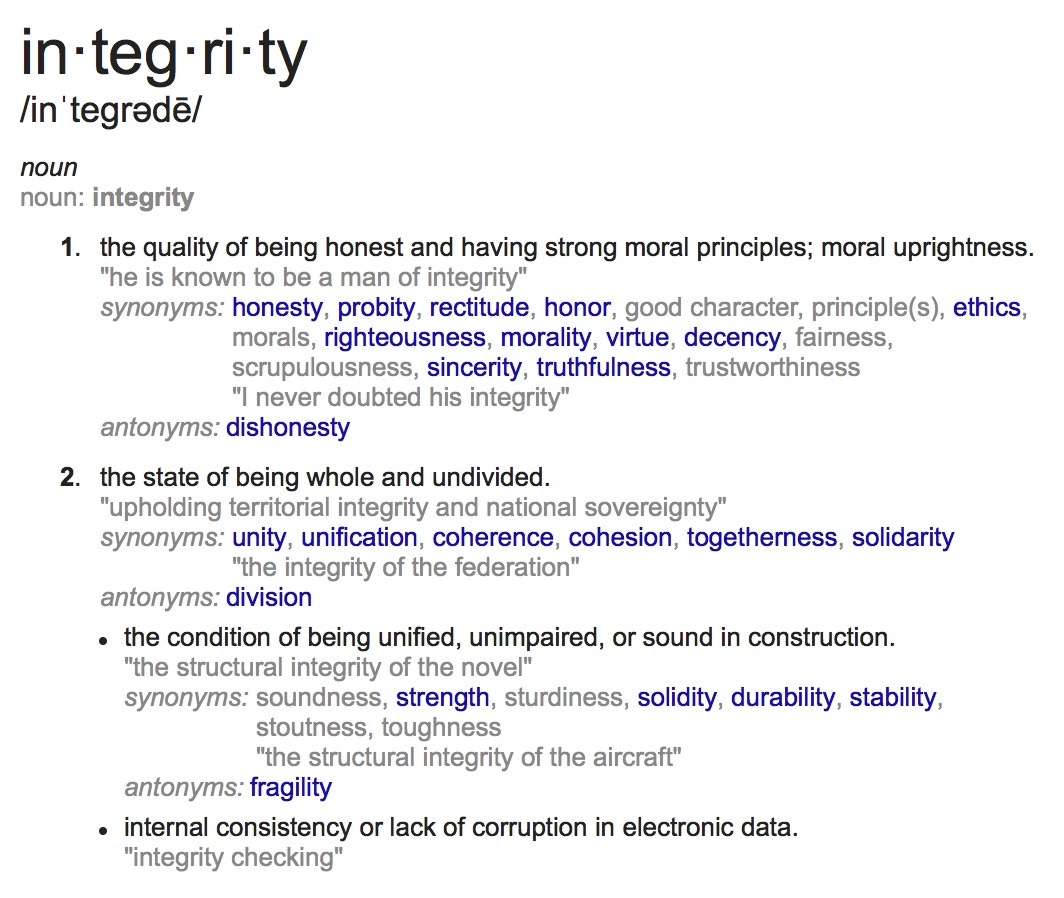The Unspoken Depth of Integrity
A Journey Beyond Morality
The term "integrity" is often bandied about, particularly in the lofty mission statements that organizations craft to define their raison d'être. Yet, it's intriguing how the focus predominantly hovers around the moral dimensions of the term, often neglecting its essence—congruency.
Let's embark on a mental exercise: strip away the complexities. When conversations spiral into the labyrinth of what's morally right or wrong, they inadvertently devolve into debates over who is right and who is wrong. Instead, why not focus on the elemental? Be true to your word. Make your word your bond, not just in your interactions with others, but—more crucially—in the promises you make to yourself.
“Concentrating on the morality of what's right or wrong often devolves into a debate about who is right or wrong”
The Threefold Impact of Authentic Integrity
My dad taught me my word is my bond. — Gary Vaynerchuk
Adhere to this principle, and a triad of transformative outcomes will unfold:
Transparency of Character: There will be no need for others to dissect your moral fiber. The question of who is right or wrong becomes moot. You grant yourself the freedom to be authentically you, for better or worse, and others can finally see you for who you truly are.
Steadfastness Amidst Flux: You'll distinguish yourself from the majority who seem to alter their principles as easily as they change their socks. While you can still adapt your views, you'll do so based on newfound insights, setting a course correction rather than making arbitrary exceptions.
A Shift in Your Social Orbit: Your peer group will gradually evolve. By using your "powers" for good, you'll magnetize individuals who share your values, thereby contributing to a more harmonious world.
The Marathon of Integrity vs. The Sprint of Dogma
Unlike organized religions, which often impose moral codes, integrity is a solo endeavor. To borrow a phrase from the #AskGaryVee show, it's about "playing the marathon, not the sprint." To truly influence outcomes, you must embody the outcome. This isn't achieved by brandishing placards or imposing your beliefs on others, but by steadfastly maintaining a congruent course that others can opt to follow. Interestingly, when you attempt to control the actions of others, it often reflects a brokenness within yourself. Recognizing and addressing this internal struggle can lead to personal growth and a more genuine influence on others.
While this post was in its embryonic stage years ago on Medium platform, I happened upon a Tim Ferriss interview with Kevin Costner that resonated with the theme of integrity. Costner recounted a pivotal moment during his senior year of college. He had seen a casting call for a Rumpelstiltskin play and decided to audition, despite having no prior acting experience. En route, his truck's accelerator jammed, propelling him toward a wall of stationary traffic—and likely, his own demise. Quick thinking saved him: he disengaged the clutch and coasted to safety.
What would the average person do next? Most likely, abandon the audition. Costner, however, vaulted over a fence, left his immobilized truck behind, and hitchhiked to the audition. He didn't get the part, but that audition ignited a passion for an industry he knew nothing about. This wasn't just determination; it was the alignment of thought and action—the bedrock of integrity.
When I articulated that I didn’t care anymore what anybody thought about what I did, except for me, all the weight of the world came off my shoulders and everything became possible. — Kevin Costner
So, dear reader, consider this: integrity isn't just about being good; it's about being whole. It's not a sprint to moral high ground, but a marathon toward self-congruence. And in that marathon, you're not just the runner; you're also the path and the destination. Now, how's that for a thought-provoking journey?





